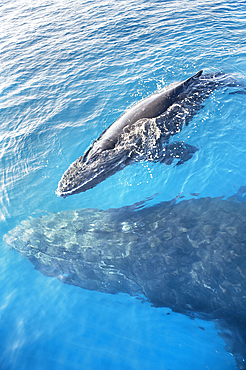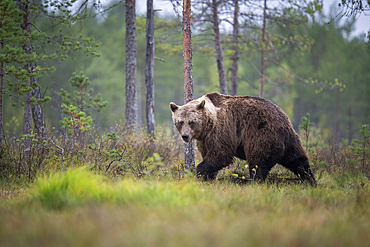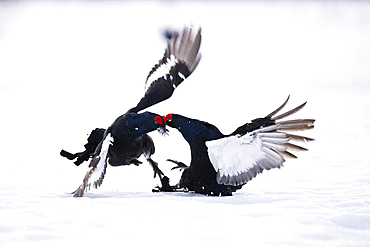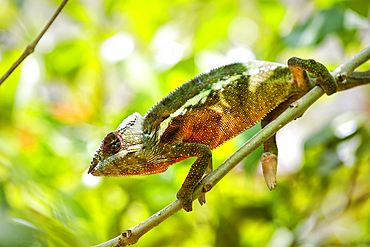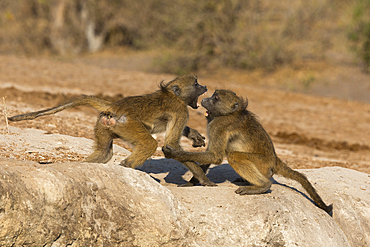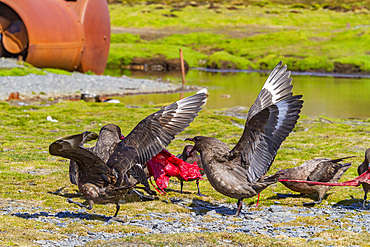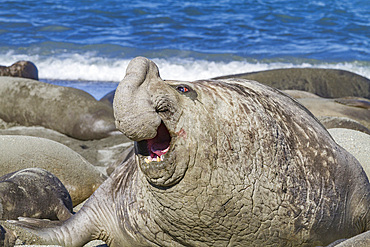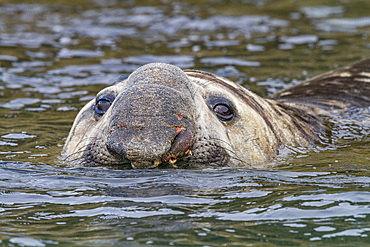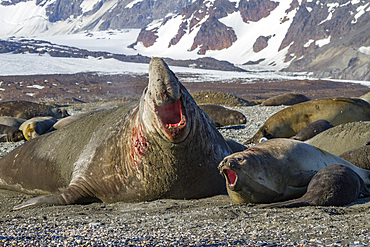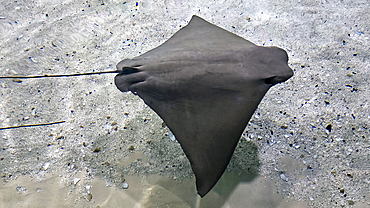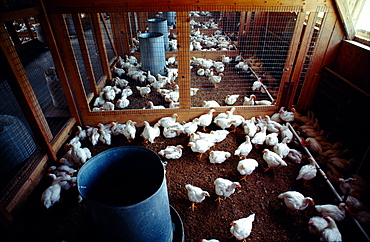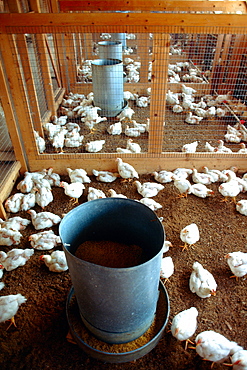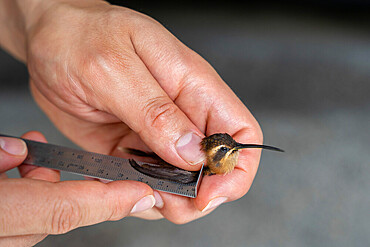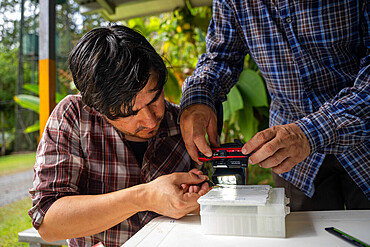Results
47 results found
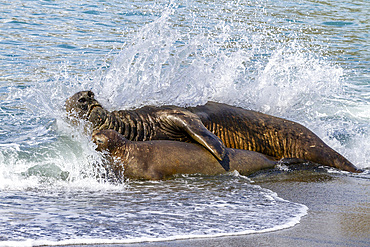
Southern elephant seal (Mirounga leonina) bull holding adult female in the surf to mate with her, South Georgia, Polar Regions
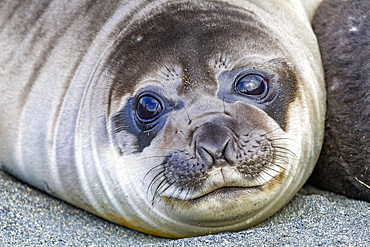
Southern elephant seal (Mirounga leonina) weaner pup head detail on the beach at Gold Harbour on South Georgia, Polar Regions
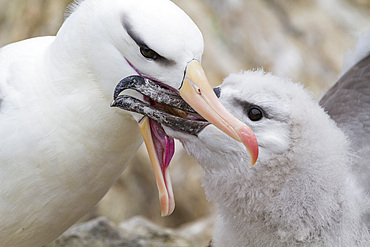
Black-browed albatross (Thalassarche melanophrys) adult feeding chick at nesting site on West Point Island, Falkland Islands, South America
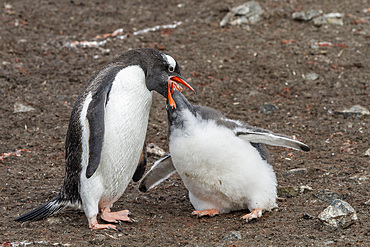
Gentoo penguin (Pygoscelis papua) adult feeding chick at Hannah Point on Livingston Island, Antarctica, Southern Ocean, Polar Regions
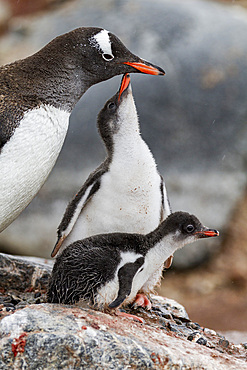
Gentoo penguin (Pygoscelis papua) adult with chicks at breeding colony on Damoy Point, Antarctica, Southern Ocean, Polar Regions
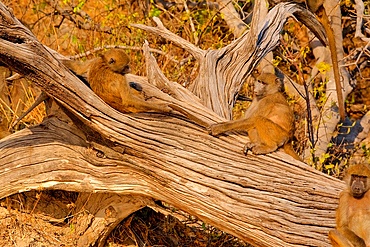
Chacma Baboons (Papio ursinus), two youngsters playing tug of war with one youngster's tail, Chobe National Park, Botswana
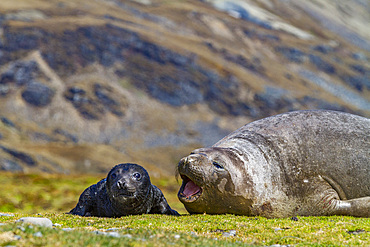
Female southern elephant seal (Mirounga leonina) with newborn pup on the beach in Stromness Bay, South Georgia Island
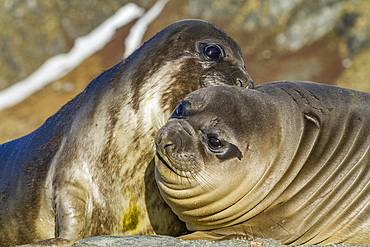
Male southern elephant seal (Mirounga leonina) pups mock fighting on South Georgia Island, Southern Ocean
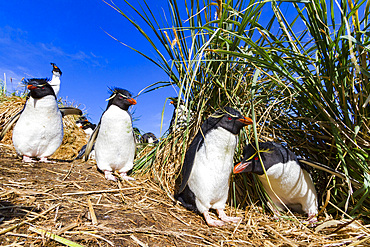
Adult rockhopper penguins (Eudyptes chrysocome chrysocome) at breeding and molting colony on New Island, Falkland Islands
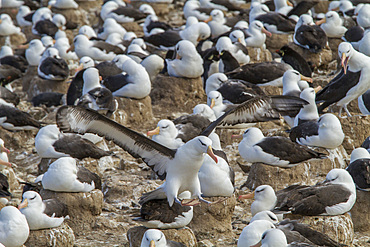
Black-browed albatross (Thalassarche melanophrys) breeding colony on Steeple Jason Island in the Falkland Islands
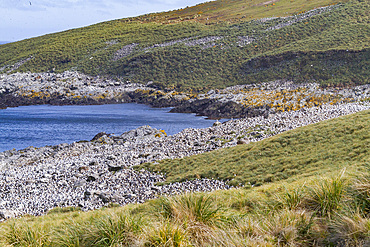
Black-browed albatross (Thalassarche melanophrys) breeding colony on Steeple Jason Island in the Falkland Islands
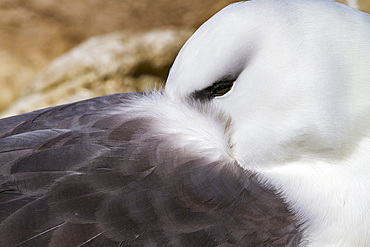
Black-browed albatross (Thalassarche melanophrys) close-up at breeding colony on Carcass Island in the Falkland Islands
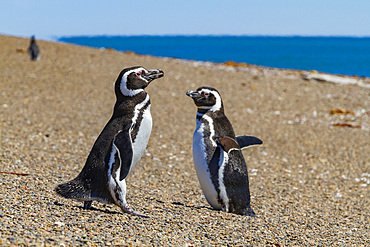
Magellanic penguins (Spheniscus magellanicus) at a breeding and molting site in Estancia San Lorenzo, Argentina
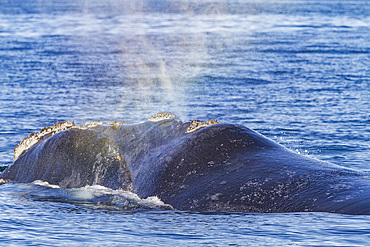
Southern right whale (Eubalaena australis) adult surfacing near Puerto Pyramides, Peninsula Valdez, Argentina
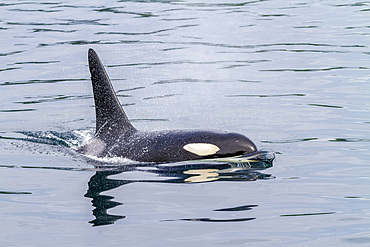
An adult bull killer whale (Orcinus orca) surfacing in Johnstone Strait, British Columbia, Canada, Pacific Ocean, North America
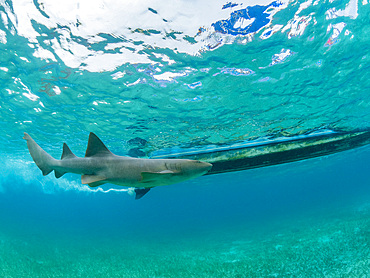
Nurse shark (Ginglymostoma cirratum), with boat in Hol Chan Marine Preserve, inside the Mesoamerican Barrier Reef, Belize
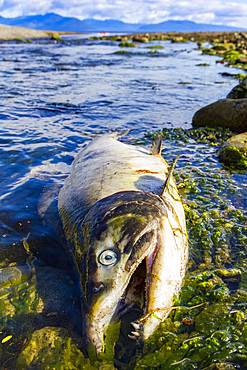
Dead and dying pink salmon (Oncorhynchus gorbuscha) gathering after the spawn just outside of Sitka, Alaska, United States of America
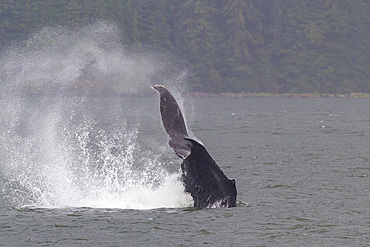
Adult humpback whale (Megaptera novaeangliae) tail throw among feeding whales in Southeast Alaska, United States of America
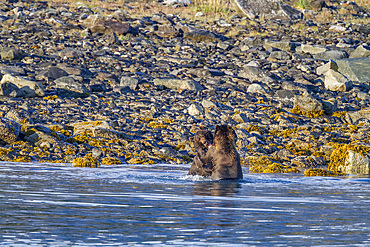
Adult brown bear pair (Ursus arctos) mock-fighting at Scidmore Cut in Glacier Bay National Park, Alaska, United States of America

Adult brown bears (Ursus arctos) foraging for salmon at the Brooks River, Katmai National Park, Alaska, United States of America
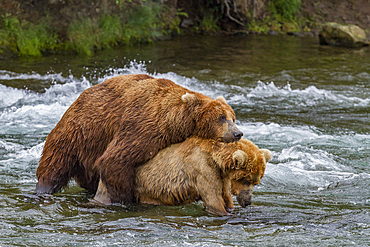
Adult brown bears (Ursus arctos) courtship behaviour, Brooks River, Katmai National Park near Bristol Bay, Alaska, United States of America
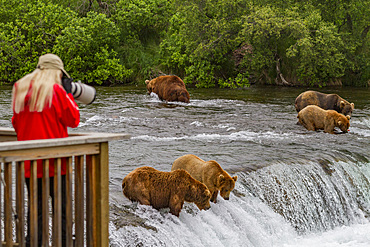
View from Park Service platform where adult brown bears (Ursus arctos) forage for salmon, Katmai National Park, Alaska, United States of America
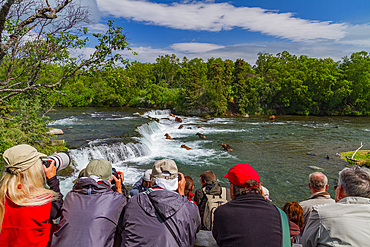
View from Park Service platform where adult brown bears (Ursus arctos) forage for salmon, Katmai National Park, Alaska, United States of America
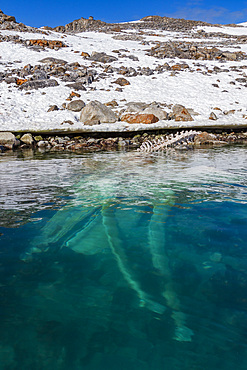
Adult fin whale (Balaenoptera physalus) carcass in Holmabukta off the northwest of the Svalbard Archipelago, Norway
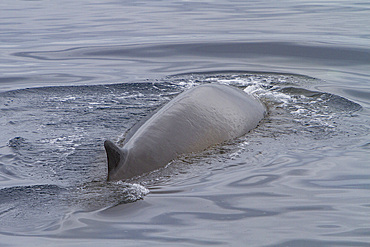
Adult fin whale (Balaenoptera physalus) sub-surface feeding in the rich waters off the Svalbard Archipelago, Norway
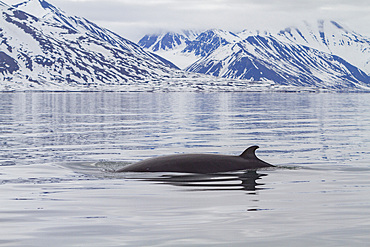
Adult common (northern) minke whale (Balaenoptera acutorostrata) sub-surface feeding in the Svalbard Archipelago, Norway
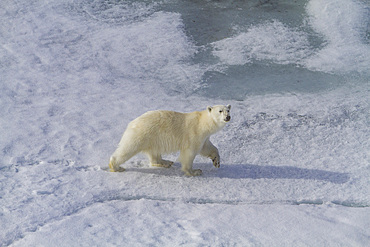
A curious young polar bear (Ursus maritimus), approaches the ship on Spitsbergen in the Svalbard Archipelago, Norway
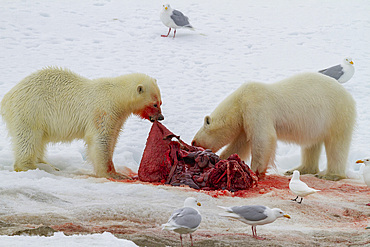
Two young polar bears (Ursus maritimus), feeding side-by-side on a fresh bearded seal kill on Spitsbergen, Svalbard, Norway
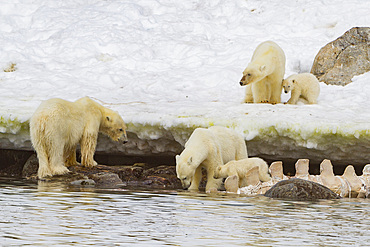
Two mother polar bears (Ursus maritimus) with cubs of the year watch a male bear feeding on a fin whale carcass in Svalbard, Norway
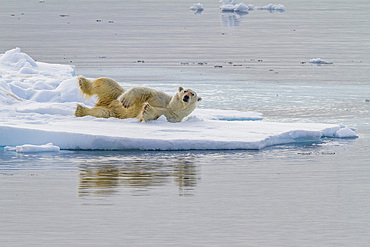
Adult polar bear (Ursus maritimus), on multi-year ice floes off the coast of Edgeoya, Svalbard, Norway
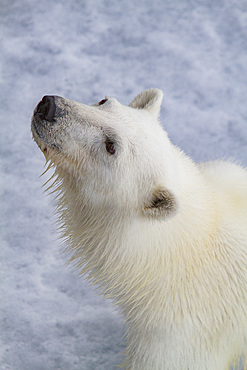
Young curious female polar bear (Ursus maritimus), on fast ice near Hinlopen Strait in the Svalbard Archipelago, Norway
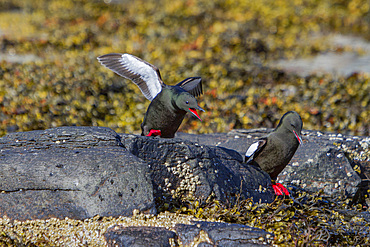
Adult black guillemot (Cepphus grylle) in summer plumage near Vigur Island in Isafjardardjup Bay, Iceland
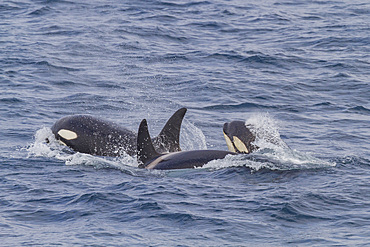
Group of at least eight killer whales (Orcinus orca) surfacing off the coast of the island of Surtsey, southern Iceland

Beachmaster bull southern elephant seal (Mirounga leonina) attempting to mate at Peggotty Bluff, South Georgia, Polar Regions
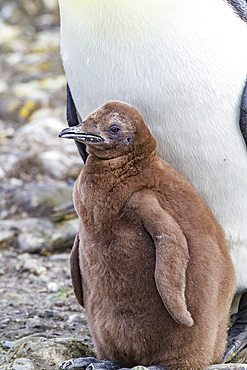
King penguin (Aptenodytes patagonicus) adult and chick at breeding and nesting colony at Salisbury Plain, South Georgia, Polar Regions
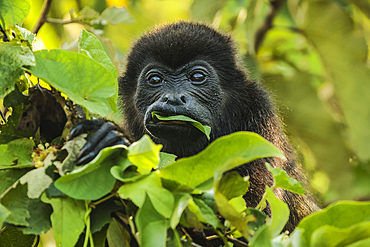
Female mantled howler monkey (Alouatta palliata) eating tree leaves in a north Pacific coast forest, Esperanza, Nosara, Guanacaste, Costa Rica
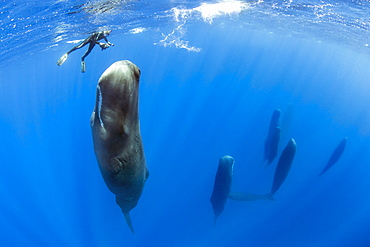
Snorkeler photographing a pod of Sleeping sperm whale (Physeter macrocephalus) Researchers first saw this unusual sleep behavior in sperm whales in 2008. The scientists in that study found that sperm whales dozed in this upright drifting posture for about 10 to 15 minutes at a time, Vulnerable (IUCN). The sperm whale is the largest of the toothed whales. Sperm whales are known to dive as deep as 1,000 meters in search of squid to eat. Dominica, Caribbean Sea, Atlantic Ocean. Photo taken under permit n°RP 16-02/32 FIS-5.
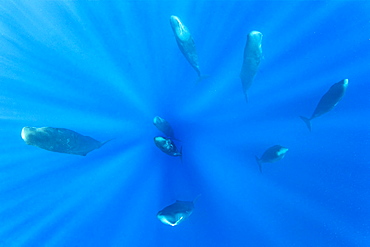
Pod of Sleeping sperm whale (Physeter macrocephalus) Researchers first saw this unusual sleep behavior in sperm whales in 2008. The scientists in that study found that sperm whales dozed in this upright drifting posture for about 10 to 15 minutes at a time, Vulnerable (IUCN). The sperm whale is the largest of the toothed whales. Sperm whales are known to dive as deep as 1,000 meters in search of squid to eat. Dominica, Caribbean Sea, Atlantic Ocean. Photo taken under permit n°RP 16-02/32 FIS-5.
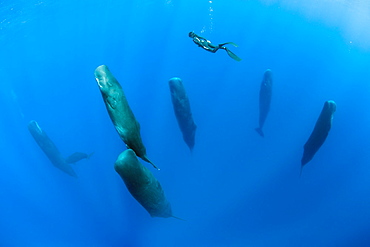
Free diver is swimming over a pod of Sleeping sperm whale (Physeter macrocephalus) Researchers first saw this unusual sleep behavior in sperm whales in 2008. The scientists in that study found that sperm whales dozed in this upright drifting posture for about 10 to 15 minutes at a time, Vulnerable (IUCN). The sperm whale is the largest of the toothed whales. Sperm whales are known to dive as deep as 1,000 meters in search of squid to eat. Dominica, Caribbean Sea, Atlantic Ocean. Photo taken under permit n°RP 16-02/32 FIS-5.
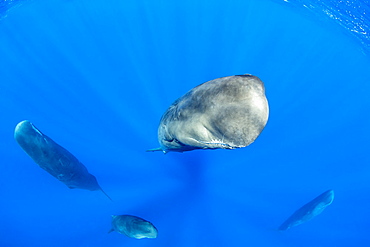
Pod of sperm whale relaxing after a short sleep (Physeter macrocephalus) Researchers first saw this unusual sleep behavior in sperm whales in 2008. The scientists in that study found that sperm whales dozed in this upright drifting posture for about 10 to 15 minutes at a time, Vulnerable (IUCN). The sperm whale is the largest of the toothed whales. Sperm whales are known to dive as deep as 1,000 meters in search of squid to eat. Dominica, Caribbean Sea, Atlantic Ocean. Photo taken under permit n°RP 16-02/32 FIS-5.
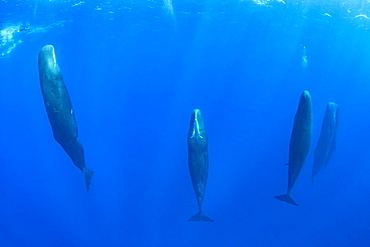
Pod of Sleeping sperm whale (Physeter macrocephalus) Researchers first saw this unusual sleep behavior in sperm whales in 2008. The scientists in that study found that sperm whales dozed in this upright drifting posture for about 10 to 15 minutes at a time, Vulnerable (IUCN). The sperm whale is the largest of the toothed whales. Sperm whales are known to dive as deep as 1,000 meters in search of squid to eat. Dominica, Caribbean Sea, Atlantic Ocean. Photo taken under permit n°RP 16-02/32 FIS-5.
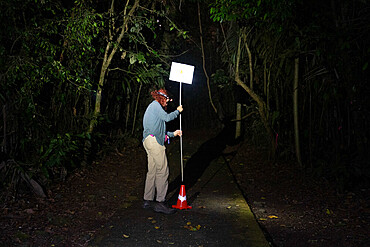
Installation of a sign on a hiking trail indicating the presence of nets to capture bats as part of a pollination study, rainforest of the "La Selva" research station in Puerto Viejo de Sarapiqui, Costa Ricardo
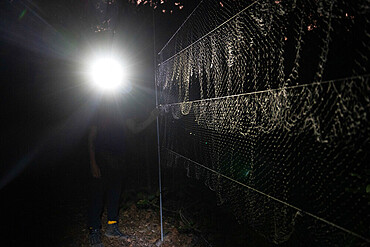
Net for catching bats as part of a pollination study, rainforest at the "La Selva" research station in Puerto Viejo de Sarapiqui, Costa Rica
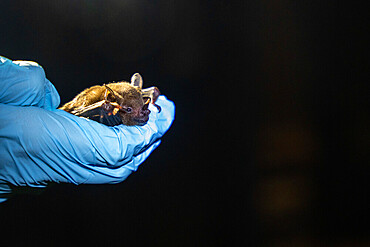
Sowell's short-tailed bat (Carollia sowelli) caught as part of a pollination study, rainforest at the "La Selva" research station in Puerto Viejo de Sarapiqui, Costa Rica
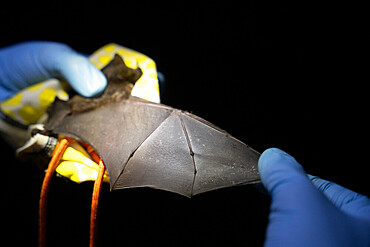
Sowell's short-tailed bat (Carollia sowelli) caught as part of a pollination study, rainforest at the "La Selva" research station in Puerto Viejo de Sarapiqui, Costa Rica
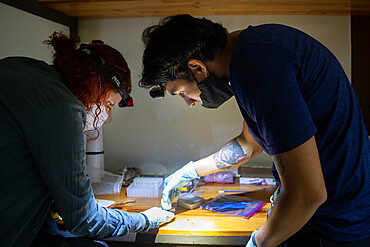
Researchers applying tape to the hairs of a bat to test methods to capture the pollen it carries as part of a pollination study, rainforest at the 'La Selva' research station in Puerto Viejo de Sarapiqui, Costa Rica
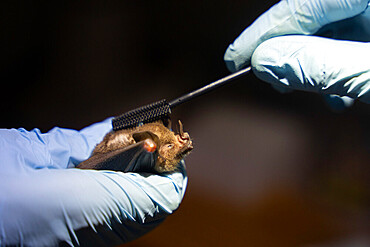
Researchers applying a mascara brush to the hairs of a Sowell's short-tailed bat (Carollia sowelli) to test methods to capture pollen that bats may carry as part of a pollination study, rainforest at the "La Selva" research station in Puerto Viejo de Sarapiqui, Costa Rica
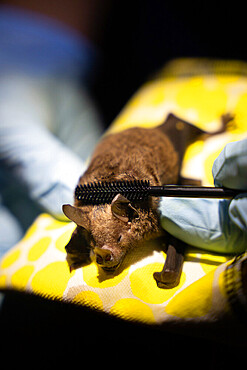
Researchers applying a mascara brush to the hairs of a Sowell's short-tailed bat (Carollia sowelli) to test methods to capture pollen that bats may carry as part of a pollination study, rainforest at the "La Selva" research station in Puerto Viejo de Sarapiqui, Costa Rica
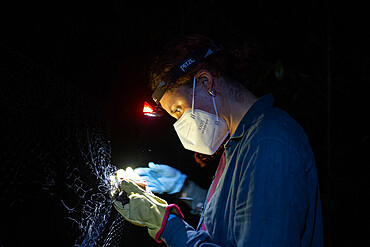
Researcher unhooking a bat caught in a net as part of a pollination study, rainforest at the "La Selva" research station in Puerto Viejo de Sarapiqui, Costa Rica
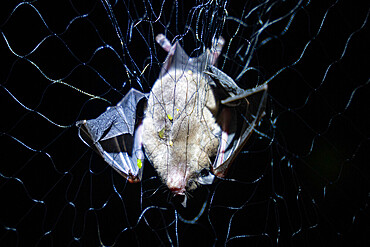
Bat caught in a net as part of a pollination study, rainforest at the "La Selva" research station in Puerto Viejo de Sarapiqui, Costa Rica
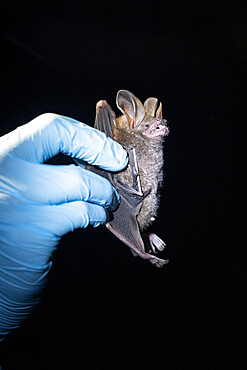
Fringe-lipped Bat (Trachops cirrhosus) in the hand of a scientist as part of a pollination study, tropical forest at the "La Selva" research station in Puerto Viejo de Sarapiqui, Costa Rica
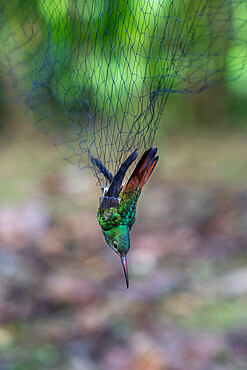
Rufous-tailed Hummingbird (Amazilia tzacatl) in a net set up by a researcher as part of a pollination study, rainforest at the "La Selva" research station in Puerto Viejo de Sarapiqui, Costa Rica
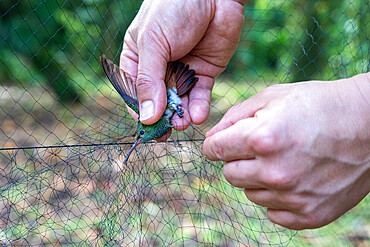
Researcher catching Rufous-tailed Hummingbird (Amazilia Tzacatl) in a net set up for pollination study, rainforest at "La Selva" research station in Puerto Viejo de Sarapiqui, Costa Rica

Researchers picking up pollen using tape on the beak of a Rufous-tailed hummingbird as part of a pollination study, rainforest at the "La Selva" research station in Puerto Viejo de Sarapiqui, Costa Rica
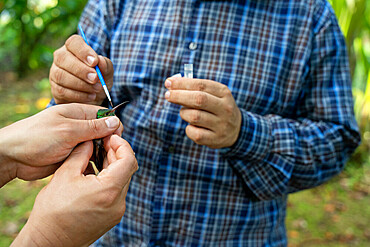
Researchers picking up pollen with a brush from the beak of a Rufous-tailed hummingbird as part of a pollination study, rainforest at the "La Selva" research station in Puerto Viejo de Sarapiqui , Costa Rica
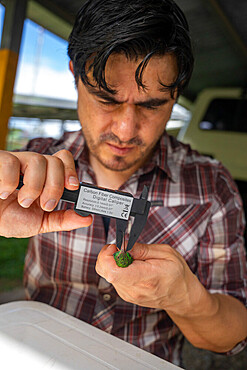
Researcher measuring the beak of a Rufous-tailed hummingbird as part of a pollination study, rainforest at the "La Selva" research station in Puerto Viejo de Sarapiqui, Costa Rica
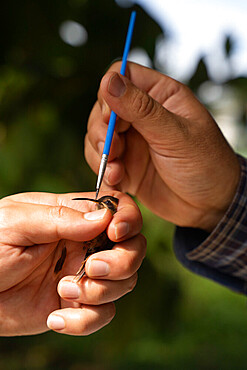
Researchers picking up pollen with a brush from the beak of a hummingbird Stripe-throated Hermit as part of a pollination study, rainforest at the "La Selva" research station in Puerto Viejo de Sarapiqui, Costa Rica
